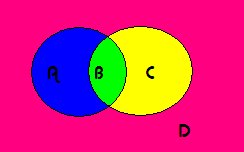When I first started college, I was determined to keep my room organized. I had a knack for losing things, misplacing important papers, and I inevitably took five minutes to leave because I couldn’t find my keys.
I decided that college would be my chance for a fresh start. I sorted the clothes in my closet by color, length, and style. I assigned specific drawers for my makeup, hair clips, and accessories. I made a vow never to leave my room with the bed unmade. And most importantly, I was going to keep the books on my book shelf in a logical order.
And here is where the problem started. What’s a “logical” order? There could be so many ways to arrange them. I started out putting them in size order. The big, hard cover textbooks were on the end, and the smaller, thinner books towards the middle. But this didn’t work for me. There was no reason in my mind why my (large, hardcover) siddur was next to my accounting book. So I separated the books differently. I split the book shelf into two sides, with my box of markers, pens, and pencils in the middle as the divider. To the left were the seforim I had brought with me from home, and on the right were the books I needed for class.
As time went on, the books eventually lost their places on the shelf. I would take one out and then put it back in a different spot. Two books would switch places, and then four, and then eight, until it was impossible to tell that there was ever any sort of order to the shelf. I decided it was time to reorganize the shelf.
At this point,I'd like to point out that I am majoring in Judaic Studies at the University of Maryland.
When I started college, it was easy to divide the books. Stuff I used for class was on the right, stuff I brought from home was on the left.
Then, I started taking Judaic Studies courses. It was still easy to divide, because I was using all my “textbooks” for class. But now, I’ve completed several of the courses. I no longer need the books for class, but decided to keep them because they were interesting reads. So now, do these books make the leap over to the left side? Do they become seforim? Do ALL of them become seforim? If I move my JPS English-only Tanakh to the left side, do I also move “Jewish Philosophy in a Secular Age”? “The Bible Unearthed”? And where do Jewish history books fit in? Is it like the famous George Santayana quote, that if we do not learn from history, we are doomed to repeat it? Then what about the positive aspects of history? I can’t possibly recreate the enlightenment, though I view it as a positive period for the evolution of Judaism.
I think the broader question at play here is how should one treat the academic study of Judaism.
A few days ago, I was sitting in a gemara shiur (not a university class). We had been discussing a difficult mishnah, and in the gemara, Rav Huna and Rav Chisda tried to explain it various ways. Both of the explanations were a stretch, and it didn’t seem like either of them were “pshat”. So the rabbi leading the shiur showed us what Rabbi David Weiss Halavni, a professor of Talmud at Columbia University and Bar Ilan University, had to say about the issue. Rabbi Halavni read the mishnah with a different perspective than R’ Huna or R’Chisda, and came up with a way of reading it that seems to make a lot of sense, even though it contradicted those amoraim.
The Rabbi asked us what we thought about what Rabbi Halavni said. We all had to agree that it made a lot more sense, but a few students had reservations about his methods. “You can’t just disagree with the gemara like that. It’s not how we do things”, they said. So then The Rabbi said “What do you suggest for someone to do, if they’ve been struggling and struggling to find pshat in the Mishnah, and then they final figure out a way to understand it, but can’t find any amora who agrees with them? Should they just ignore this thought?” The student’s response: “Well, if they see a value in sharing their views, they shouldn’t publish it in a book that looks like a sefer.” [Rabbi Halavni’s book is written in Hebrew, leather bound, and is called ‘mekorot u’mesorot’]
I personally thought that what Rabbi Halavni said was great, and if I had a copy of his book, I would have placed it prominently on the left side.
I wonder where I would have placed his book 2 years ago, before I started learning secular Judaic studies?
